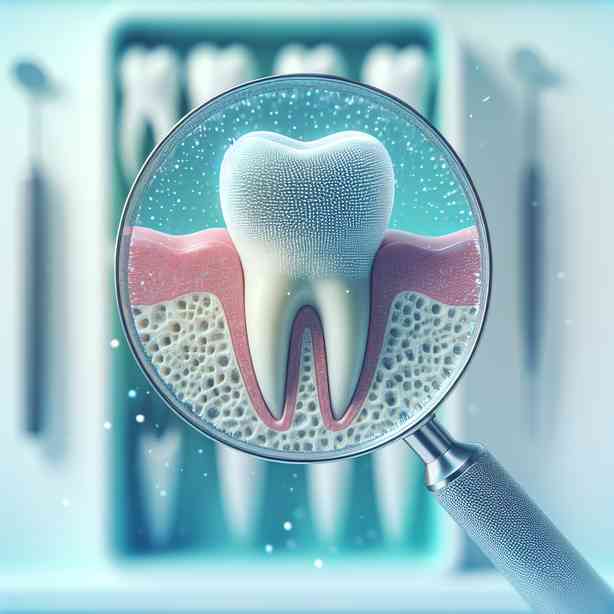
Teeth are often perceived as hard and resilient structures, primarily designed to withstand the forces of chewing and biting. However, the reality is that teeth are more porous than many people realize. This porosity significantly influences their strength, durability, and overall health. In this discussion, we will explore the composition of teeth, the impact of porosity on dental health, and ways to maintain the integrity of our dental structures.
The human tooth is composed of several layers, each serving a unique function. The outermost layer, known as enamel, is the hardest substance in the human body and provides protection for the inner layers of the tooth. Beneath the enamel lies the dentin, which is a porous structure that makes up the bulk of the tooth. Dentin contains tiny tubules that connect to the pulp, the innermost part of the tooth that contains nerves and blood vessels. This porous nature of dentin makes it susceptible to various dental issues, including decay and sensitivity.
The porosity of teeth is often overlooked, yet it plays a critical role in how teeth respond to external forces and environmental factors. For instance, when we consume acidic foods and beverages, the acid can penetrate the porous structures of dentin more easily, leading to demineralization and, ultimately, cavities. This highlights the importance of understanding the porous nature of teeth in order to protect them effectively.
Research has shown that the porosity of teeth can vary significantly among individuals, influenced by factors such as genetics, diet, and oral hygiene practices. Individuals with a diet high in sugars and acids may experience greater porosity in their teeth over time due to the erosion of enamel and subsequent exposure of the dentin. Moreover, those who practice poor oral hygiene are more prone to plaque buildup, which can further deteriorate the enamel and exacerbate the porosity issue.
Another aspect to consider is the aging process. As we age, our teeth may become more porous due to natural wear and tear, changes in the biochemical composition of the enamel and dentin, and a decrease in saliva production. Saliva plays a crucial role in neutralizing acids and washing away food particles and bacteria, thus helping to maintain the health of our teeth. Reduced saliva production, common in older adults, can lead to increased porosity and a higher likelihood of dental problems.
To mitigate the effects of porosity, several preventive measures can be taken. First and foremost, practicing good oral hygiene is essential. This includes brushing twice a day with fluoride toothpaste and visiting the dentist regularly for check-ups and cleanings. Fluoride is particularly important as it helps to remineralize enamel and can strengthen the tooth structure, making it more resistant to decay.
In addition to regular dental care, dietary choices play a significant role in maintaining the integrity of teeth. A balanced diet rich in vitamins and minerals, particularly calcium and vitamin D, is vital for healthy teeth. Foods that are high in calcium, such as dairy products, leafy greens, and almonds, can help strengthen enamel and reduce porosity. On the other hand, limiting the intake of sugary and acidic foods can prevent erosion and decay, preserving the health of both enamel and dentin.
Hydration is another key factor in dental health. Drinking plenty of water throughout the day can help maintain saliva production, thus aiding in the natural remineralization of teeth and reducing the impact of acids. Additionally, chewing sugar-free gum can stimulate saliva flow, providing an extra layer of protection against acidity.
For those already experiencing dental issues related to porosity, there are treatments available to help restore tooth health. Dental sealants, for instance, can provide an additional protective barrier against decay by filling in the grooves and pits on the teeth. Similarly, dental restorations like crowns and fillings can address areas where decay has already occurred, helping to restore functionality and aesthetics.
In conclusion, understanding that teeth are more porous than we might initially think is crucial for maintaining dental health. The intricate structure of teeth, combined with factors like diet, hygiene, aging, and genetics, impacts their porosity and susceptibility to decay. By adopting a comprehensive approach that includes proper oral hygiene, a balanced diet, regular dental visits, and awareness of the effects of aging, individuals can better protect their teeth from the challenges posed by their porous nature. Ultimately, taking these proactive steps can lead to healthier, stronger teeth that withstand the tests of time and usage.


